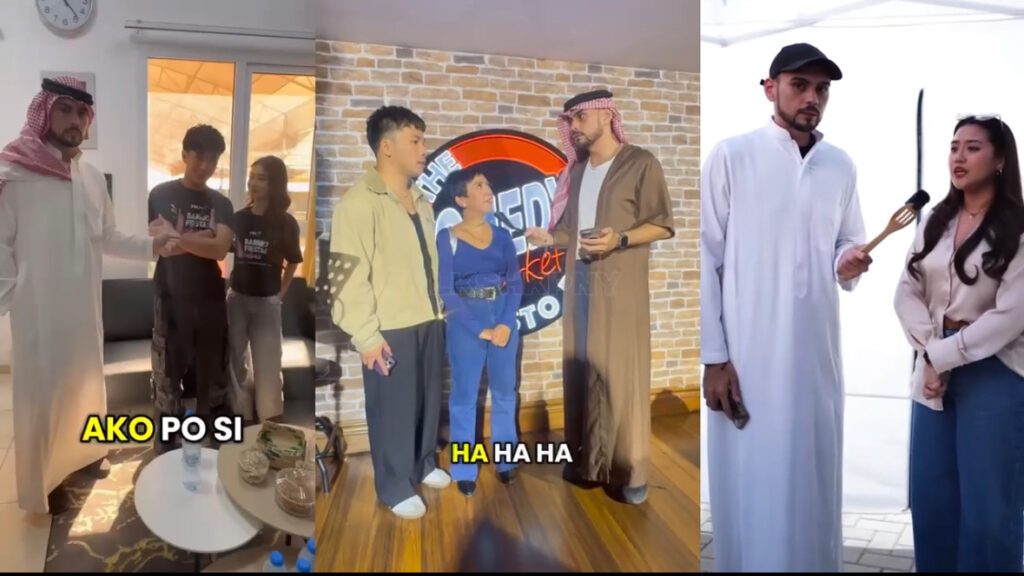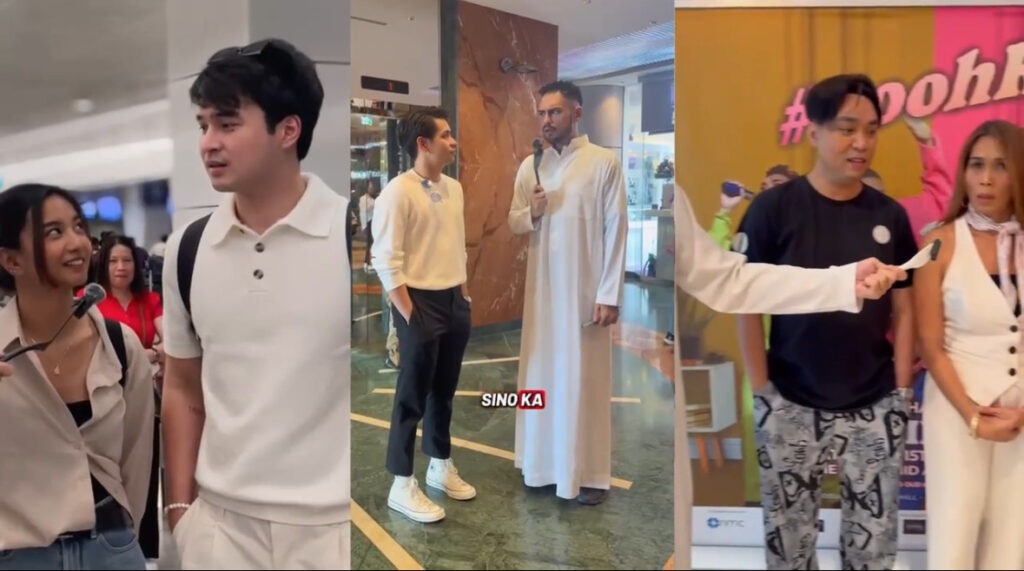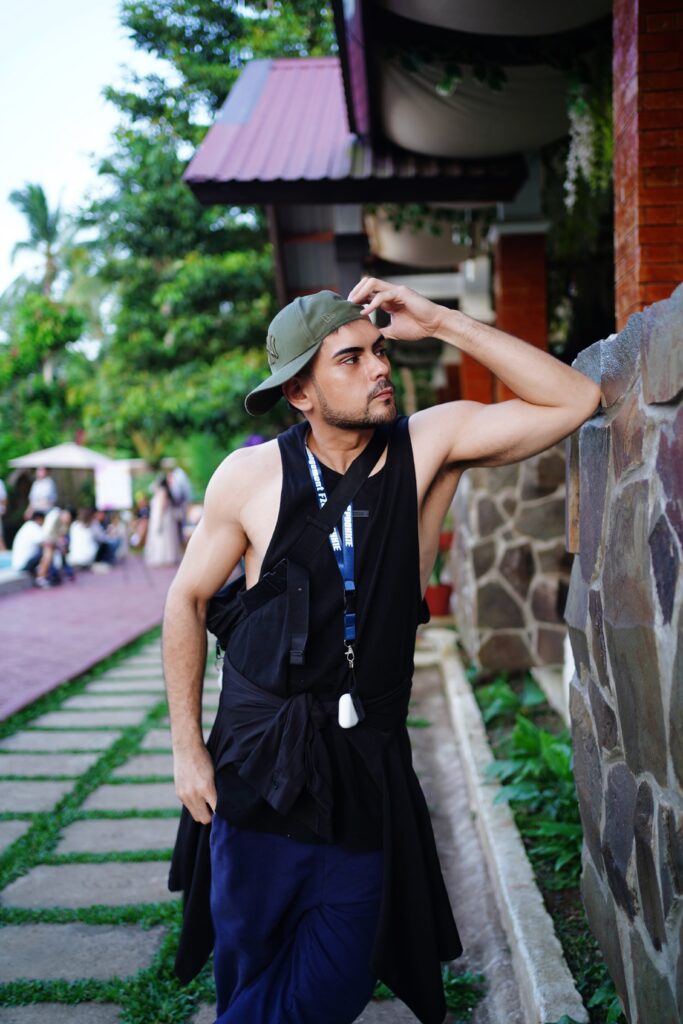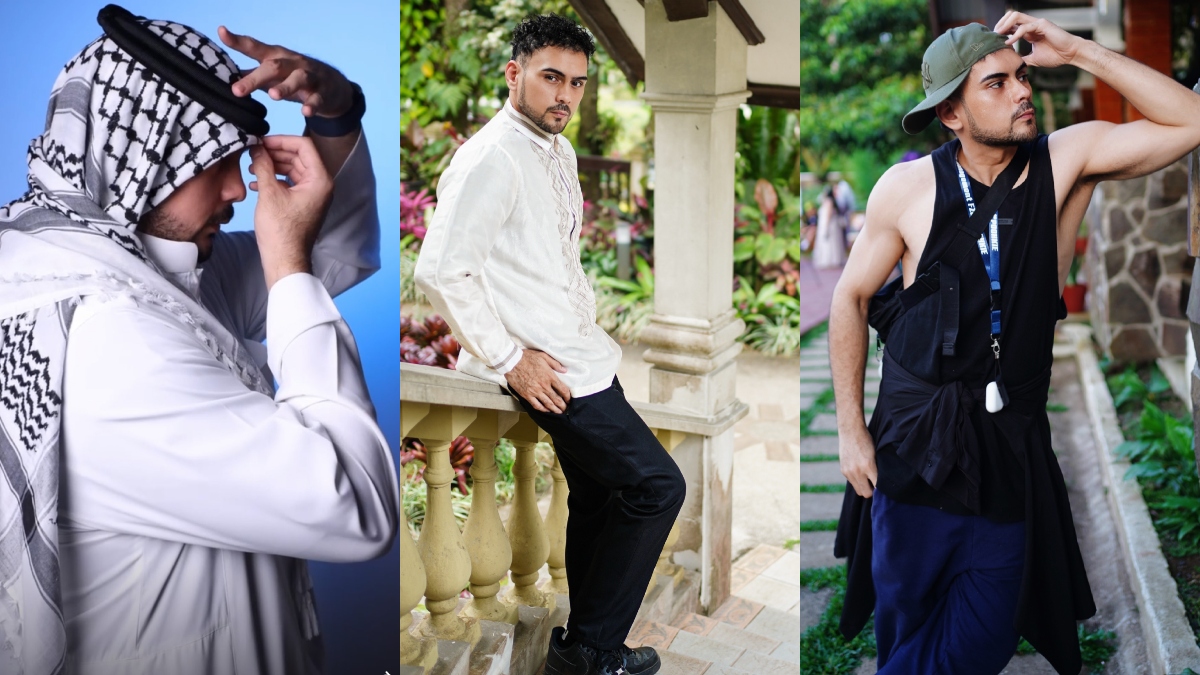Not everyone finds their dream career by following the conventional path. For some, it’s the unexpected turns and personal battles that lead them to purpose. That was the case for Dubai-based content creator Milksheikh Pinoy, born Hadee Abu Zahra, who turned a complex cultural upbringing and personal loss into a powerful voice for Overseas Filipino Workers (OFWs).
At 30 years old, Hadee has already carved out a unique space in the world of digital storytelling, balancing Arab and Filipino identities to create content that’s both hilarious and deeply human. But his journey—spanning grief, identity, and self-discovery—is anything but ordinary.

Embracing a mixed identity through community and content
Hadee was born and raised in the UAE to a Filipina mother and a Palestinian father. From an early age, he found himself balancing two distinct cultures—immersed in the warmth of Filipino traditions while navigating the expectations of Arab society. This duality, however, often left him feeling like an outsider.
“I wasn’t ‘Arab enough’ for the Arabs, and I wasn’t ‘Filipino enough’ for the Filipinos,” he shared. “That kind of in-between space can be really lonely.”
When his mother passed away at the age of 11, Hadee was thrust even deeper into his Arab roots, further distancing him from the Filipino identity he had grown up with. But as he matured, he began to realize he didn’t need to choose between the two. “My strength is in being both,” he explained. “My uniqueness wasn’t something to hide—it was something to be proud of.”

That realization laid the groundwork for his content creation journey. He began with community work at the Philippine Consulate in Dubai, under the leadership of then-Consul General Paul Raymund Cortes. There, he coordinated with OFW groups, organized events, and laid the foundation for what would become his life’s work—serving as a bridge between cultures and communities.
Later, he became one of the key figures behind Emirates Loves Philippines, a community-focused platform that spotlighted the lives of Filipinos in the UAE and the broader Middle East. “I was the host, editor, scriptwriter, videographer—everything,” he recalled. The role was demanding, but it fueled his passion for representing the unspoken stories of OFWs in media.
Eventually, Hadee realized he needed to create something personal, something that reflected both his roots and his vision. That’s when Milksheikh Pinoy was born—a name that encapsulates his Arab heritage (“Sheikh”) and his Filipino pride. It was a turning point that not only cemented his identity but also catapulted him into social media stardom.

A digital space where OFWs feel seen and heard
With nearly half a million followers on TikTok and Instagram, Hadee has built a loyal audience by blending humor with heart. His skits—often highlighting OFW life, cultural quirks, and relatable daily struggles—resonate deeply with viewers across the globe.
“What I enjoy most is that what I do actually means something,” he said. “It’s more than just content creation—it’s about giving a voice to the Filipino workers here in the UAE.”
His mixed background, once a source of confusion and insecurity, is now his superpower. “When Filipinos here see someone like me, who proudly embraces both sides and chooses to represent them, it makes them feel like they belong too,” he explained. “It’s not just about visibility—it’s about connection.”
It’s that sense of purpose that drove him to audition for Pinoy Big Brother, one of the Philippines’ most iconic reality shows. Encouraged by fellow content creators and celebrities like Fyyang, Pokwang, and Kim Chiu, Hadee took a leap of faith. “At first, I doubted myself—I didn’t think I had a talent. But then I realized: my presence is the talent,” he said.
For him, this audition is more than just a personal dream. “It’s my way of telling every Filipino working abroad, ‘You are not invisible. You belong. And you deserve to be seen on the main stage.’”
Turning personal loss into purpose
While his online persona is upbeat and funny, the man behind the screen carries a deep sense of empathy shaped by personal loss. After losing both of his parents, Hadee knows what it feels like to be adrift—culturally and emotionally.
“Losing my mom at 11, and later my dad, left a huge void. When you grow up without your parents, especially in a multicultural environment, it’s easy to lose your sense of self,” he shared. But instead of letting that pain consume him, he chose to channel it into something meaningful.
One of his future goals is to create advocacy programs focused on orphans and children who have lost their parents. “That kind of loss shapes you. It makes you question who you are. That’s why I feel so strongly about helping others who are navigating life without that foundation,” he said.
This drive to give back is rooted not only in his personal experience but also in the community he grew up in. His father, one of the first to sublease apartments specifically for Filipinos in Dubai, unknowingly planted the seeds of community service early in Hadee’s life. “Growing up around OFW families, I witnessed their joys, their struggles, and their resilience,” he said. “So even if I’ve never ‘moved abroad’ in the traditional sense, my heart has always been aligned with the OFW experience.”
And that alignment has become the heartbeat of his work. Through his videos, his advocacy, and his very presence in the digital space, Hadee offers OFWs something rare and valuable: representation.
Creating spaces where others feel seen
Looking ahead, Hadee’s vision goes beyond content creation. He wants to build spaces—both online and offline—where young Filipinos, especially those navigating dual identities, feel safe, seen, and supported.
“Whether in Dubai, Manila, or anywhere else, my mission stays the same: to represent, to uplift, and to make sure no one feels invisible,” he said.
It’s a mission he’s already fulfilling in many ways. His videos don’t just entertain—they validate. They remind viewers that it’s okay to straddle two worlds, that you don’t need to “fit in” to belong. And most importantly, they offer a slice of home to those who often feel far from it.
To those currently struggling abroad, his message is clear and heartfelt: “Don’t forget why you’re here, but also don’t forget who you are. Don’t lose yourself in trying to survive. The right people will help you rise, not drain you.”
He urges fellow kabayans to be cautious about who they trust, especially when it comes to love, finances, and friendships. “Stay connected to the people who uplift you, not just tolerate you,” he said. “Save for yourself first. Remember, utang na loob is not the same as sacrificing your future.”
And in a world that often reduces OFWs to labor statistics or economic contributors, Hadee offers a refreshing and necessary counter-narrative: “Whether you’re a cleaner, a nurse, a driver, a content creator—whatever your role—your story matters. You’re building something not just for yourself, but for generations after you. That alone makes you a hero already.”






